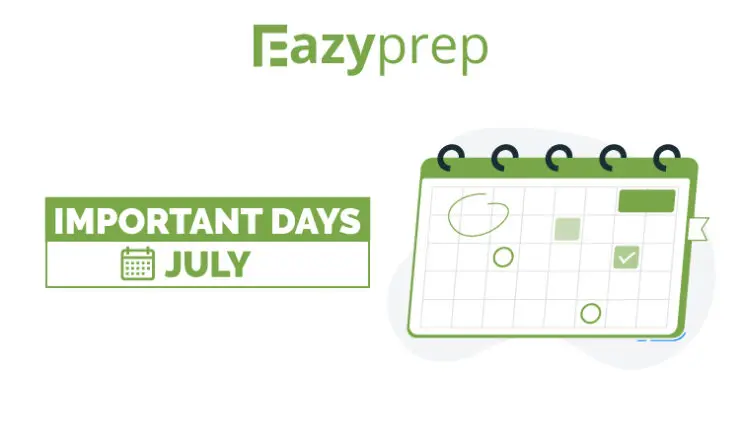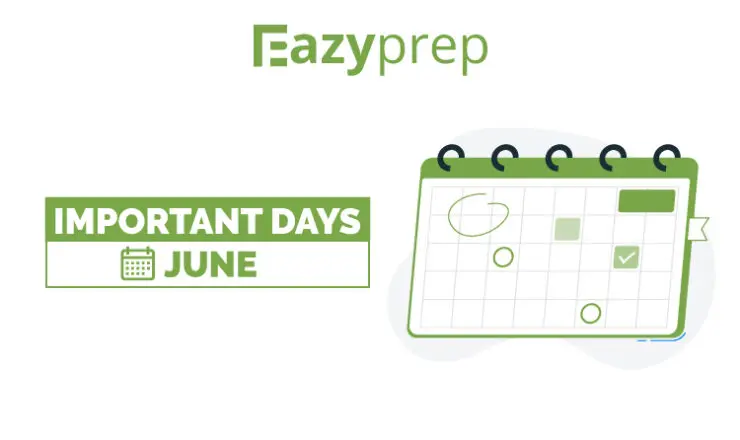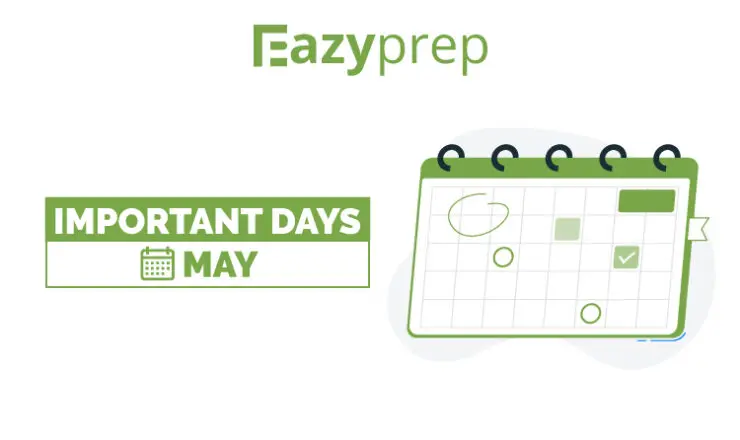![]()
 What will you learn in this article
What will you learn in this article
- What are the different types of adverbs
- What are the different uses of adverbs in English Language
 ExamConnect
ExamConnect
This theory will help you attempt ‘Fill in the Blanks’ and ‘Sentence Completion’ questions with more confidence.
Types of Adverbs
Now that we know the basics of adverbs and their functions, let’s take a look at the types of adverbs. Adverbs are broadly categorised into the following classes, according to their usage. The categories are adverbs of time, frequency, place, manner, degree/quantity, affirmation/negation, reason, interrogative and relative.
EazyTip: To remember so many types of adverbs, just make sense and relations out of them. Adverbs are usually used for description. And descriptions usually answer questions. So out of nine adverbs, six answer questions:
- When: Adverb of time
- How often: Adverb of frequency
- Where: Adverb of place
- How: Adverb of manner
- How much: Adverb of degree/quantity
- Why: Adverb of reason
- The seventh type of adverb is a question itself: interrogative
This leaves us with just two more adverbs
- Affirmation/negation: Modify positively or negatively
- Relative: Join clauses
Let’s understand these categories in detail using our previous example of cricket again.
Case of the miscreant cricketer
Suppose that the captain of a cricket team wants to let go of one of the team members because he is uninterested and keeps coming late for practice, hence affecting the morale of the entire team. He goes to the coach to discuss this issue. What questions will the coach ask about the undesirable actions before initiating any disciplinary action? He’ll ask when did it happen? How often? Where? How? How much? Why?
Do these questions sound familiar? Yes, we just read them in the EazyTip above! Great, then let’s start by reading this table below. It contains the conversation between the coach and the captain, and we will see how they used all types of adverbs in it.
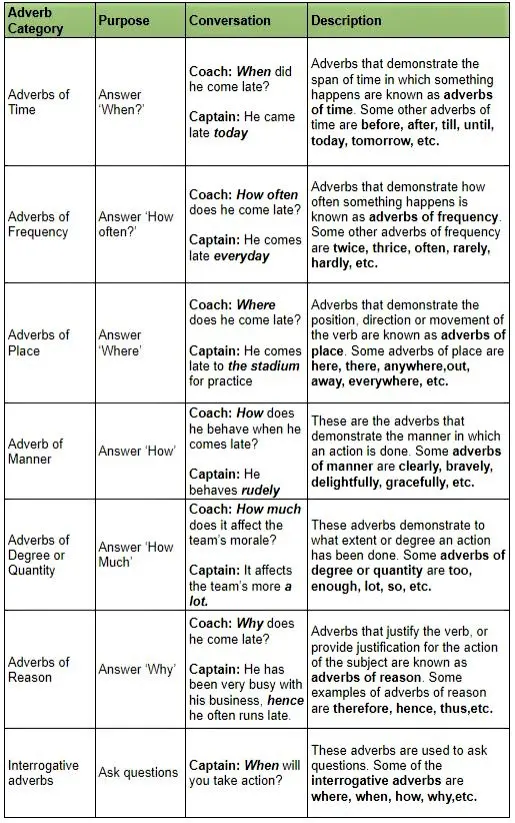
And continuing with non-question adverbs…
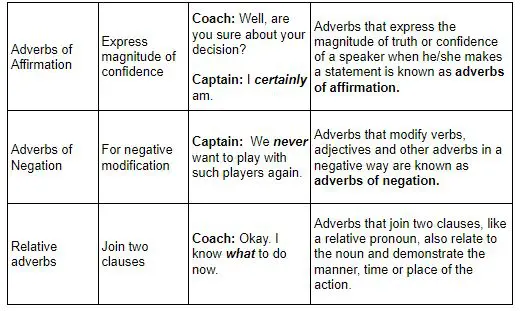
More Examples
Here are some more examples of the various categories of adverbs:
Adverbs of time
- I have heard this before.
- We arrived later that evening
- She has not done the work assigned to her yet.
Adverbs of frequency
- I speak with her rarely.
- He seldom goes to the Church.
- I have explained the terms thrice to her.
Adverbs of place
- The little lamb followed Mary everywhere.
- He went away to Europe.
- My father is not home, he is out.
Adverbs of manner
- She is fully prepared for the exam.
- The boy is soft spoken.
- The Marathas fought bravely.
Adverbs of degree
- She loves her books a lot.
- We have done enough work for today.
- This article needs a very thorough read.
Adverbs of reason
- He was sick, therefore, he couldn’t attend the classes.
- Patches of dark clouds are hovering in the sky. Hence, the delay in flight departure.
Interrogative adverbs
- When did you arrive? (interrogating adverb of time)
- How did you contract the disease? (interrogating adverb of manner)
- Where were you last night? (interrogating adverb of place)
Adverbs of affirmation and negation
- Surely you are mistaken (affirmation)
- He most certainly is the culprit. (affirmation)
- I never speak with him. (negation)
Relative adverbs
- This is why he left his job.
- Does anyone know when the train will arrive?
- I know where the shop is.
Awesome! Now that we have learnt the types of adverbs, let’s talk about what to do when we have to use multiple adverbs in the same sentence in the next article.
 LearningChecker
LearningChecker
Before you move on to the next concept, just ponder over the following questions to revise what you just learnt.
- What are the nine different types of adverbs?
- What are their respective functions?
